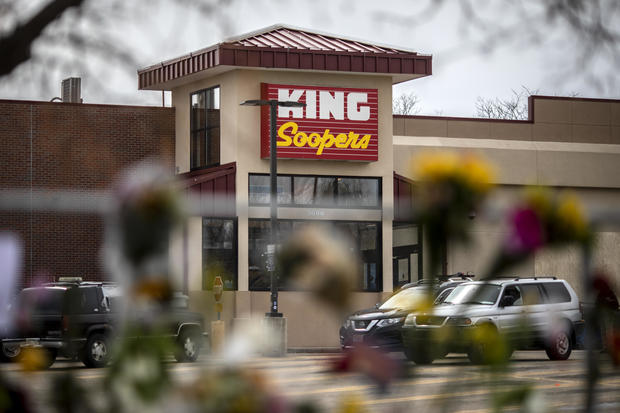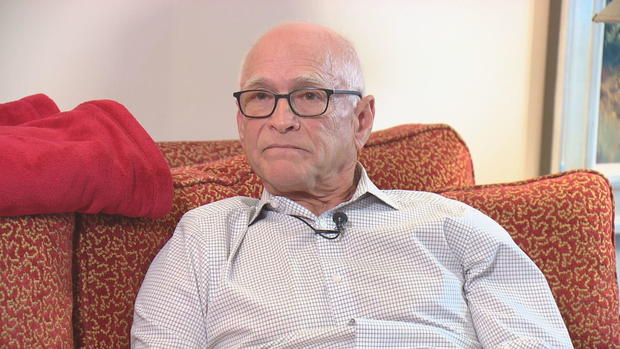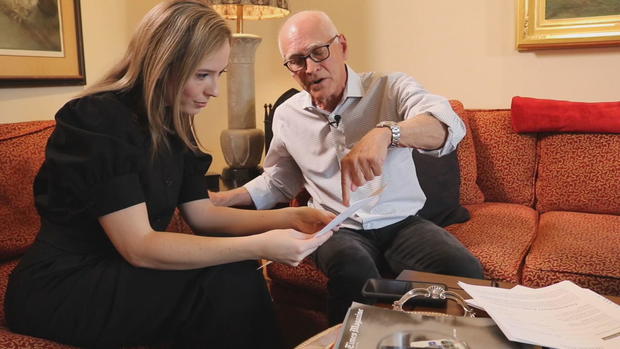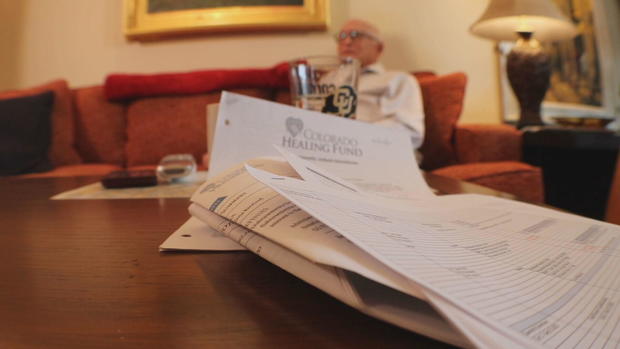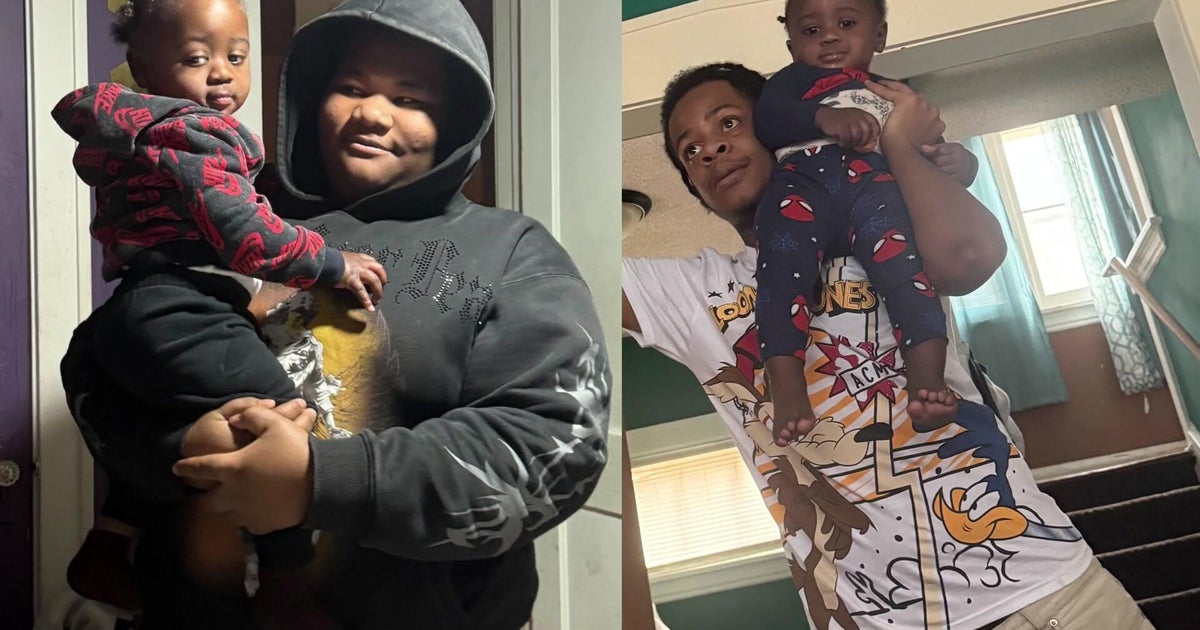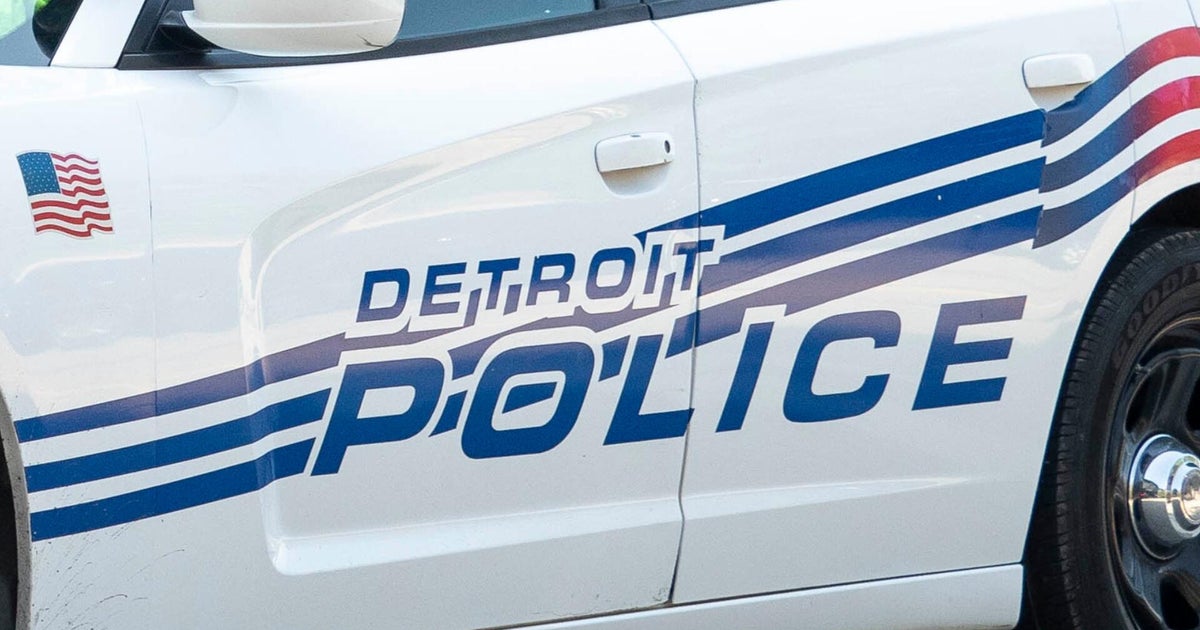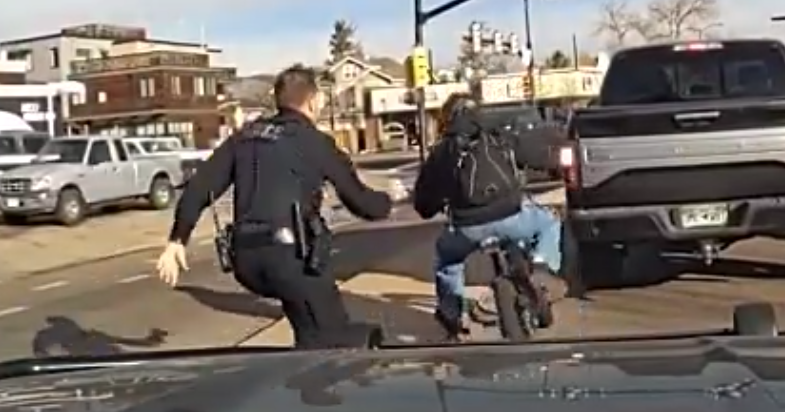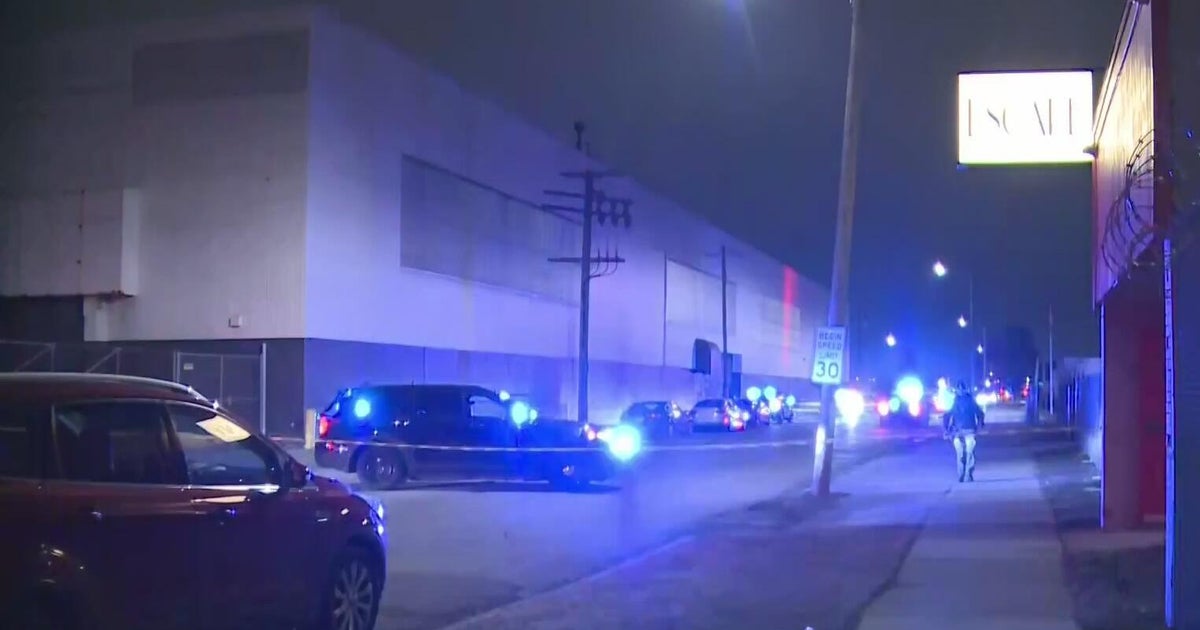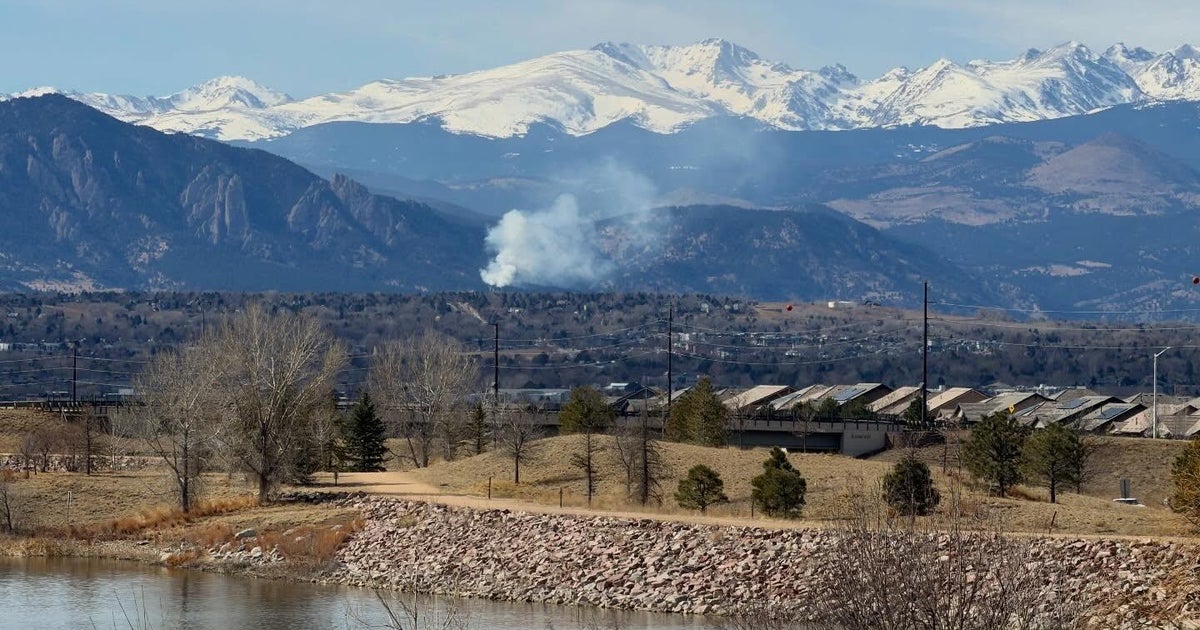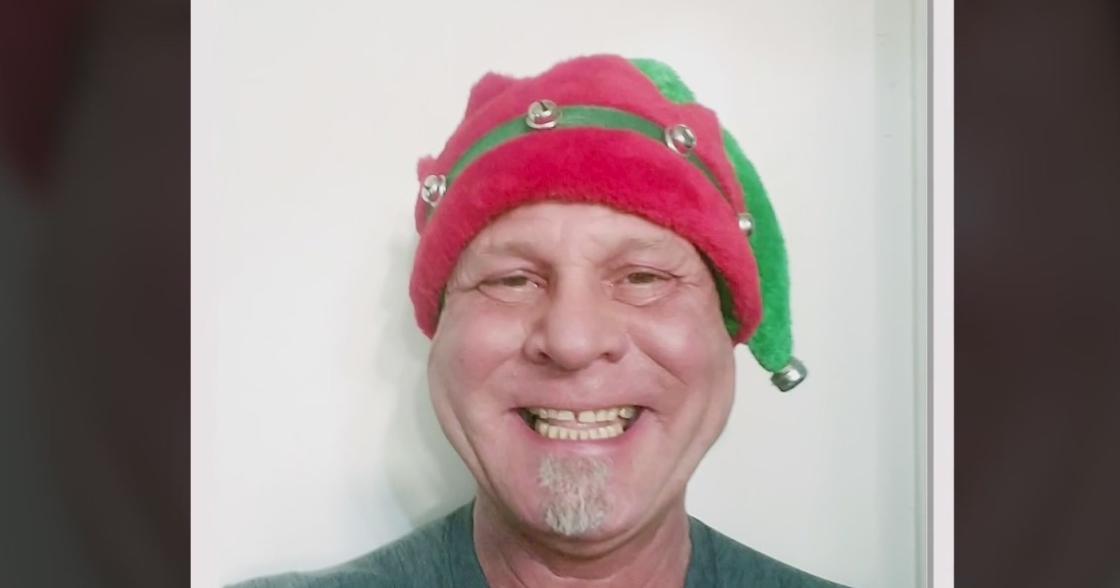Boulder King Soopers shooting victim's family questions Colorado nonprofit's management of donated money
This month marks three years since the Boulder grocery store shooting where 10 people were killed, and now a Colorado nonprofit that raised millions of dollars for victims is once again under the microscope for how those donations were spent and distributed.
Generous Coloradans donated $4.8 million to a nonprofit called the Colorado Healing Fund after the tragedy.
Now the Healing Fund is planning to give victims and families of the people who were killed another round of money from those donations in the coming weeks.
But those families feel the Colorado Healing Fund hasn't been transparent about how it's managing that money.
Victims' families have a lot of unanswered questions, and it's not the first time these concerns have come up with this organization.
They tell CBS News Colorado they can't get answers to simple questions like, "how much money is still left in the donations account?"
The Fund won't tell us either. All there is to lean on is a newly released report showing there was more than $833,000 left in the account in December of 2023.
The new report, just obtained by CBS News Colorado, shows there's now $833,297 remaining in the Boulder shooting donations account, which the Healing Fund manages. That's an increase of about $200,000 since the summer of 2023.
The head of the Healing Fund tells CBS News Colorado the Boulder Strong Resource Center is now asking for less funding, however, questions about why the decrease in funding is happening have not yet been answered.
One man's grief turned to action
The day Chuck Hunker lost the mother of his children is forever seared in his memory.
"Shock and disbelief, I guess it was," he recalled. "My daughter called me and said, 'there's a shooting at the King Soopers where she shops every day, and she's not calling me back, and she always calls me back,' so she said right away, 'she's dead.'"
Jody Waters was one of the 10 people killed at the King Soopers in Boulder on March 22, 2021.
"Jody and I met when we were 14, and then we were married for 30-plus years and business partners and parents," he said. "Very creative, hard worker, lots of integrity, honesty, and she had quite a few very close friends, but she was a mother, number one."
He never imagined he would speak with a reporter about her story.
"We had no interviews, we didn't talk to anybody," he said. "We didn't watch any TV, we didn't read newspapers. So we just got support from each other, and that was the most important thing. I think that's helped us a lot."
But he recently invited CBS News Colorado Investigator Kati Weis to his home in Boulder to talk about his growing concerns with the Colorado Healing Fund.
"I have no idea why they are not more forthcoming and transparent," he said.
As the executor of Waters' estate and a numbers guy, Hunker helped his daughters with administrative items so they had one less hassle while grieving.
"It wasn't about accessing funds. It was never about that. It was like, okay, so this came from here and this came from there," Hunker said. "We were thankful and grateful to those sources and the generosity of so many people."
At first, he says it was hard to get his daughters reimbursements for simple things like therapy.
"There were some things, like, the therapist wasn't filling out the right code or whatever," he said. "The form wasn't right, and for me to spend time, you know, chasing that kind of stuff down wasn't important to me. So I just didn't bother."
More questions than answers about monetary donations
As time went by, Hunker said he noticed discrepancies in the Healing Fund's accounting: "I drew up a spreadsheet of, you know, beginning, end of quarter or end of semi-annual funds, and it just wasn't adding up correctly. The numbers weren't good."
For example, he noticed in the fund's July through December 2022 report that the organization reported having $4.7 million in donations received and $567,650 left to give out, but in the January to June 2023 report, the fund suddenly reported having $4.8 million in donations, even though it said there was $0 in additional donations received for that time frame, and $623,297 remaining to be disbursed.
The head of the Healing Fund told CBS News Colorado after this story was published that the difference is net versus gross income, but did not elaborate further.
"You're running an actual organization that- that has a responsibility for $4.8 million," Hunker said. "That's a lot of money. It should be more professional. And they have professional people on the board, they have professional people who they're giving money to, they have professional people who give them advice, so why can't you have a professional accounting system?"
Hunker asked to speak with the fund's bookkeeper and treasurer, but he says the Healing Fund told him "no."
"What really took me off guard was the fact that they're not listening to the people who they supposedly are helping," he said.
Then this year, he asked to speak with the board of directors before they casted their votes on how the remaining money in the fund should be disbursed.
"I want them to hear from the victims, besides just our letter writing and our phone calls," he said.
But that request wasn't granted either.
To that, he told us he had the same questions: "well, it's the same as everything else. It's like, why? Who are they serving?"
It was only about three months ago when he learned that he wasn't the only one with concerns.
A community of victims
Some victims of the Club Q shooting in Colorado Springs also spoke out.
"I wasn't terribly surprised that I wasn't the only person asking these questions, but I was surprised just how deep it went," Hunker said.
After Club Q, victims voiced concerns over the handling of donated money. The organization says it gave out all of the remaining Club Q donations to those victims in November, just one year after the shooting took place.
It's now been three years since the Boulder King Soopers shooting and still potentially over $833,000 sits waiting to be given to the people they were intended for in the first place.
"So these experts know better than the victims of whether they should have the money or not now or should they hang on to that money for them in the future?" Hunker said. "They may need more therapy right now. Or if they're struggling with rent or whatever their needs are now, why hold back any money?"
RELATED: One year later, Club Q victims are still fighting for transparency over funds donated in their names
In January, Colorado Healing Fund Executive Director Kevin McFatridge sent out an email to stakeholders defending itself and calling victims and family members "activists" for speaking out against the fund's actions.
"I wanted to share some information and related context about a decision we have made that you may hear about from activists who continue to be critical of the Colorado Healing Fund," he wrote in that email, before mentioning that the Bread and Roses Law Firm asked them to disburse $350,000 to Club Q victims and another $150,000 to the 2021 Denver area tattoo shop shootings, which the Healing Fund said in the email it will not be doing.
Hunker and other victims tell me the characterization of them as "activists" was insulting.
"No, not activist. How about, we are part of the family of victims of this murder? So, where are your values?" Hunker asked. "This is very off base."
The Healing Fund responded to those concerns in a written statement saying, "CHF has not used the term activist in reference to any survivors, victims, or families of the deceased."
The Colorado Healing Fund said earlier this year that it "follows a proven model for disbursing funds (...) created by more than 20 of Colorado's leading experts in the area of incident response who evaluated numerous responses ranging from 9/11 to the Virginia Tech shootings (...) to identify best practices (...) (and) all audits have been 'clean' or unmodified."
However, Hunker says the fund should publicly release those audits, its governing documents and a thorough explanation of the supposed model it uses to decide who gets what and when. He also feels financial reports should be more detailed, and describe more specific information about where money has been disbursed.
"I just don't think they're treating us well," Hunker said. "They don't want to communicate with us."
"They should be contacting me with their reports and say, 'hey, this is what's been going on, this is what we're doing,'" he continued.
The Healing Fund responded in a written statement, "we do not disclose amounts given to survivors, victims, and family members of the deceased as this is to maintain the confidentiality of personal financial information and protect individuals' privacy."
We found when it comes to how nonprofits collect and disburse donations after mass tragedies, few regulations are in place in Colorado to hold organizations accountable, including no requirement for audits to be available to the public.
The Healing Fund said its online financial reports are proof that it's "completely transparent about the funds we collect and disburse."
RELATED: Colorado Healing Fund responds to criticism over donation distribution for victims
But Hunker says those reports are too vague and should detail how much money the organization gave to who and when from each mass tragedy account it's created.
"There's no breakout between the different funds for the different things that they've been collecting money for," he said.
"It's a basic requirement of non profits to fulfill donor intent. You also cannot use misleading language in order to gather these funds or collect these funds, which is all they're doing," says Anita Bush, founder of a different nonprofit called Victims First, which does release its audits publicly.
Bush lost a family member in the Aurora Theater shooting, and says these issues happen time and time again after each Colorado mass tragedy.
"They're using the words 'support victims' instead of 'direct to victims,' and that's a big, that's a big difference," Bush said. "But it's misleading the public, and I believe it's purposely misleading the public into thinking that those donations are going directly to victims."
Some lawmakers tell us they are reviewing potential policy changes for next year's legislative session. But until then, some people who still grieve devastating losses three years later feel the Healing Fund should make changes of its own.
"Better reports, so that the people can trust their judgment," Hunker said. "For as many times as they say they are transparent, it doesn't make it so."
Hunker and other victims' families would like to see some legislative changes.
McFatridge repeatedly declined interviews with us despite our coverage of concerns similar to Hunker's over the last few months.
When we asked for a comment on this story, the Healing Fund said in an emailed statement it "will disburse funds to victims and surviving family members of the deceased prior to the third annual day of remembrance on March 22, 2024. It would be inappropriate for CHF to publicly release details before privately communicating with recipients. CHF will share additional, non-confidential information when funds are disbursed."
CBS News Colorado obtained internal emails from the governor's office showing after both the Club Q and Boulder shootings, leaders of several state agencies forwarded messages to their staff telling state workers they could give "securely" by donating to the Colorado Healing Fund.
CBS News Colorado asked the governor's office if they're still in support of the fund or if there are any plans in the works for more oversight. We have not yet received a response.
The suspect from the King Sooper's shooting, where 10 people were killed, is still awaiting trial.
